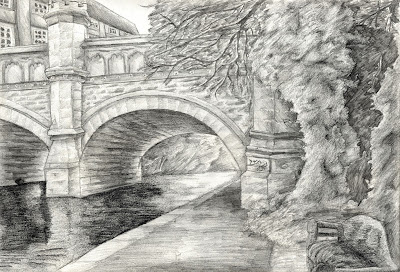Around the age of 10 I was introduced to handheld gaming when I received a Gameboy pocket for my birthday, the idea of being able to play videogames on the go amazed me although the reason I got one was simple; Pokémon. Probably the biggest game to impact my childhood, and regardless of the craze that swept the nation, still remains a solid game and one that I still play to this day.
The Nintendo brand of handheld consoles I would continue to buy with each iteration, for the sole purpose of playing each main instalment of the Pokémon series. Sure I’d play other games as well, but it was that damn electric rodent that kept me coming back for more.
Super Mario Land 2: The first game I played on the Nintendo Gameboy, and one of the only Mario games I ever really played to be honest. Continued my love of platform games into the handheld generation.
Pokemon Blue, the first Pokemon game I played. The very concept of forming your own team of monsters and going on an adventure with them blew my mind, and the fact that you could link your game with a friends Gameboy and trade and battle with them pretty much dominated my break time on the school playground.
The follow on games to the original Pokemon games, Gold, Silver (and later Crystal versions) would not only continue the winning formula of the series they would live up to the hype of the original games and improve on them in every way. I always remember beating the pokemon league and finding out that I was able to travel back to the previous games map, and explore that all over again.....Classic
The PlayStation one was my first step into fully 3d gaming, and didn't disappoint. I got one a lot later than most of my friends, my mum actually bought the new PSone smaller model by mistake for Christmas, though was still awesome as i imagined. It was the games id play one this console that would cement my ambition of wanting to design games for a living.
Rayman 2: The Great Escape was the first game i played on the PSone, and was a solid platform game (they were still my favourite type of game at this point). I still love how people question everything about games today, yet back then no one raised any problems over the fact that this guy was running around with no arms or legs...ahhh, memories
Crash Bandicoot, back before he became an exhausted mascot that just begged to be killed off... 2 and 3 were awesome games that were genuinely fun to play, and made use of ridiculous humour to add to the experience
http://www.youtube.com/watch?v=K7L3h_a5szw&feature=related
http://www.youtube.com/watch?v=K7L3h_a5szw&feature=related
The Tomb Raider games were some of the first I played on PlayStation, and I was god awful at them. After awhile though, I really got into them, and loved exploring each new exotic location. I probably sucked so much at them to start with, because 3 was the first I played and that game just wanted anyone who played it to die repeatedly at every opportunity
http://www.youtube.com/watch?v=s7-muo4GIzc
http://www.youtube.com/watch?v=s7-muo4GIzc
Another awesome platformer, the first 3 Spyro the Dragon games are still some of the most fun I have played. Had a wicked sense of humour that is still reflected in Insomniac's current games (Ratchet and Clank), and a random vendetta against sheep
http://www.youtube.com/watch?v=CduvEG1ItsM
http://www.youtube.com/watch?v=CduvEG1ItsM
Never really enjoyed playing racing games, though I loved the driver series on PlayStation 1, mainly because it threw you into an open world and just allowed you to drive about exploring and annoying the law. I guess it was the game that would get me into Grand Theft Auto when i eventually got a PS2
http://www.youtube.com/watch?v=CVqVUIb_LWQ&feature=related
http://www.youtube.com/watch?v=CVqVUIb_LWQ&feature=related
Tekken 3 was the first in the series i played, and i loved it despite never really being that good at beat em ups. I just loved the varied range of characters, they were as diverse as you could possibly get. And who didn't love beating up that bloody panda with Yoshimitsu? Animal cruelty at its finest, and most ridiculous
http://www.youtube.com/watch?v=s9gYxJZt1Ac&feature=related
http://www.youtube.com/watch?v=s9gYxJZt1Ac&feature=related
Actually had the first metal gear solid a few years before i properly got into it, on account of me being so terrible at this whole concept of stealth at first. Once I did though, I discovered a game who's story and characters would really stay with me throughout all my years of gaming. Hiding in a cardboard box whilst smoking never got any cooler than in this game
http://www.youtube.com/watch?v=67KEBDXAwOY&feature=related
http://www.youtube.com/watch?v=67KEBDXAwOY&feature=related
Final Fantasy is the most influential game series I have played, and has influenced my decision to work in the games industry; as soon as I saw the worlds these games opened up in front of you I saw the potential of what you could do with video games. FF7 Introduced me to the series, 8 showed me how each game could be so different and 9 would become one of my favourite games of all time, everything from its art style, epic story, diverse characters and incredible soundtrack demonstrates everything a game should be in my opinion
Around the time i started getting into the Final Fantasy series they began to re-release the previous instalments on PlayStation (with the exception of FF3). They gave me the chance to see how the series progressed, and each game was awesome in its own right even with their old school graphics. 6 is definitely one of my favourite final fantasies, its such a massive and epic game that continues to rival many modern day RPG's





























